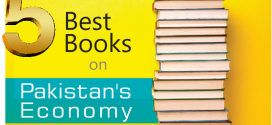Those seriously interested in Pakistan’s foreign policy should keenly study Abdul Sattar’s book, especially because he has tried to narrate, what he calls “plain history” of Pakistan’s foreign policy since independence. The book assumes more importance because there is a serious dearth of literature on Pakistan’s foreign policy. S.M. Burke’s Pakistan’s Foreign Policy: An Historical Analysis is the first comprehensive book in this domain. Burke’s superiority lies in his great ability to record history of Pakistan’s foreign policy by presenting documents, which could only be obtained through sheer hard work and dedication to a higher cause. Second is Shahid M. Amin’s Pakistan’s Foreign Policy which is based more on analysis than on documentation of a gigantic nature. In addition, Sajjad Haider’s Reflections of An Ambassador deals brilliantly and critically with the years of Soviet intervention of Afghanistan. Agha Shahi’s Pakistan’s Foreign and Security Policy is once again a critical and analytical account of Pakistan’s foreign policy.
Abdul Sattar, the author of the book under review, belongs to the rare breed of Pakistani bureaucrats-turned-scholars who are eminently qualified to enlighten readers on the genesis and development of Pakistan’s foreign policy since its emergence as an independent state. He served the country as a professional diplomat for nearly 40 years. And in 1999, the military dictator General Pervez Musharraf, obviously impressed with his credentials, chose him as his foreign minister.
Sattar’s book Pakistan’s Foreign Policy 1947-2005 is the story of Pakistan’s engagement in the international arena. It provides a recapitulation of the important milestones, the rationale behind fateful decisions and the constraints and considerations that propelled Pakistan to move in certain directions.
The purpose of this book is two-fold: to provide objective, factual and detailed account of history of Pakistan’s foreign policy between 1947 and 2005; and to give a historical framework in order to inspire policymakers to develop deeper and richer understanding of the political and strategic milieu in the making of Pakistan’s security and foreign policy.
The book has 23 chapters, which cover almost all the important areas of concern in Pakistan’s foreign affairs. Among others, the chapters include Foreign Policy: Beginnings; The Kashmir Question, 1947-57; Search for Security; Alliances: Costs and Benefits; Relations with China; Policy Ups and Downs: 1965-71; Simla Agreement; The Nuclear Programme and Relations with the USA; The Afghanistan Crisis; Pakistan-India Disputes and Crises; Nuclear Tests; Increasing Isolation, 1990-2001; Post-9/11 Policy; Terrorism; Pakistan-India Relations, 2001-05; and Policy in a Changing World.
 In Chapter 2 ‘Foreign Policy—Beginnings’ the author has explained the genesis of Pakistan’s foreign policy. He asserts, “The foreign policy of Pakistan was to be moulded in the crucible of interaction with its neighbour India, but it was imbued from the start with the idealistic vision of the state’s founding father. Quaid-i-Azam Mohammad Ali Jinnah, the first head of the new state, was a man of ideals and integrity, committed to the principles of peace with faith and confidence in human capacity to resolve differences through the application of logic and law.”
In Chapter 2 ‘Foreign Policy—Beginnings’ the author has explained the genesis of Pakistan’s foreign policy. He asserts, “The foreign policy of Pakistan was to be moulded in the crucible of interaction with its neighbour India, but it was imbued from the start with the idealistic vision of the state’s founding father. Quaid-i-Azam Mohammad Ali Jinnah, the first head of the new state, was a man of ideals and integrity, committed to the principles of peace with faith and confidence in human capacity to resolve differences through the application of logic and law.”
 He quotes Quaid-i-Azam: “Our foreign policy is one of friendliness and goodwill towards all the nations of the world. We do not cherish aggressive designs against any country or nation. We believe in the principle of honesty and fair play in national and international dealings and are prepared to make the utmost contribution to the promotion of peace and prosperity among the nations of the world. Pakistan will never be found lacking in extending its material and moral support to the oppressed and suppressed people of the world and in upholding the principles of the United Nations Charter.”
He quotes Quaid-i-Azam: “Our foreign policy is one of friendliness and goodwill towards all the nations of the world. We do not cherish aggressive designs against any country or nation. We believe in the principle of honesty and fair play in national and international dealings and are prepared to make the utmost contribution to the promotion of peace and prosperity among the nations of the world. Pakistan will never be found lacking in extending its material and moral support to the oppressed and suppressed people of the world and in upholding the principles of the United Nations Charter.”
The foreign policy of a state, according to the author, is a means to an end and it must adapt itself to safeguard its independence, sovereignty, security and integrity. Moreover, it should promote the legitimate aspirations of its people towards economic and social progress and attain dignity and honour in the comity of nations. In the opinion of the author, since the beginning of its foreign affairs, Pakistan had to face two major dilemmas. One, there was the search for remedy against wide disparity in power in the region, and second, to explore new resources for development. There was realisation to have a “mast” to sail smoothly in foreign affairs. Thus, the contours of foreign policy of Pakistan, were shaped by quest for security and economic development.
 The chapter on Simla Agreement and its implications has been written in a very coherent manner, yet it carries certain technical flaws. For instance, basic thrust of the chapter on Simla Agreement was that it was an “imposed” treaty. While the experts on international law and treaties, give different viewpoints and say that according to article 52 of the Vienna Convention on the Law of Treaties, “a treaty is void if its conclusion has been procured by the threat or use of force.” This means that treaty is binding on the states even if it is concluded under “duress”. And, Pakistan has never challenged the validity of the treaty. Instead, it has always owned it, which can be judged from the prevailing fact that it wants solution of the Kashmir conflict under the Simla Agreement and UN resolutions.
The chapter on Simla Agreement and its implications has been written in a very coherent manner, yet it carries certain technical flaws. For instance, basic thrust of the chapter on Simla Agreement was that it was an “imposed” treaty. While the experts on international law and treaties, give different viewpoints and say that according to article 52 of the Vienna Convention on the Law of Treaties, “a treaty is void if its conclusion has been procured by the threat or use of force.” This means that treaty is binding on the states even if it is concluded under “duress”. And, Pakistan has never challenged the validity of the treaty. Instead, it has always owned it, which can be judged from the prevailing fact that it wants solution of the Kashmir conflict under the Simla Agreement and UN resolutions.
In the chapter on historical events after 9/11, the author contends that the decision to join the US war against global terrorism was taken before the US had asked, or, in the words of writer, before a “request” was made. This is, however, not supported by facts that appeared in later accounts and writings. It can be judged from this that Pakistan had decided to take a “U-turn” in foreign policy by abandoning the Taliban regime in Afghanistan under US pressure. In Musharraf’s autobiography, “In the Line of Fire,” it is mentioned that former Secretary of State, Colin Powell’s telephonic call “ordered” Pakistan to join the US-led coalition forces in war against Afghanistan. Also, Richard Armitage threatened to “bomb Pakistan back to the stone age,” which does not support author’s argument. In fact, Bob Woodward in his book ‘Bush at War?’, also described the fact of US diplomatic pressure on Pakistan for making a turnaround in its policy. The author has also been unable to explain the resurgence of Taliban in Afghanistan and Pakistan’s efforts to curb its subsequent spill-over.
 Overall, the book, its shortcomings notwithstanding, is very informative and provides enough food for thought for policymakers, researchers and general readers. Moreover, it is a valuable addition to the existing literature on foreign policy of Pakistan by an experienced diplomat, who has been an eyewitness to significant developments over the years. Readers should take a serious look at Abdul Sattar’s narration of Pakistan’s foreign policy and draw independent conclusions on its role in the promotion of the country’s overall interests.
Overall, the book, its shortcomings notwithstanding, is very informative and provides enough food for thought for policymakers, researchers and general readers. Moreover, it is a valuable addition to the existing literature on foreign policy of Pakistan by an experienced diplomat, who has been an eyewitness to significant developments over the years. Readers should take a serious look at Abdul Sattar’s narration of Pakistan’s foreign policy and draw independent conclusions on its role in the promotion of the country’s overall interests.
 Jahangir's World Times First Comprehensive Magazine for students/teachers of competitive exams and general readers as well.
Jahangir's World Times First Comprehensive Magazine for students/teachers of competitive exams and general readers as well.






